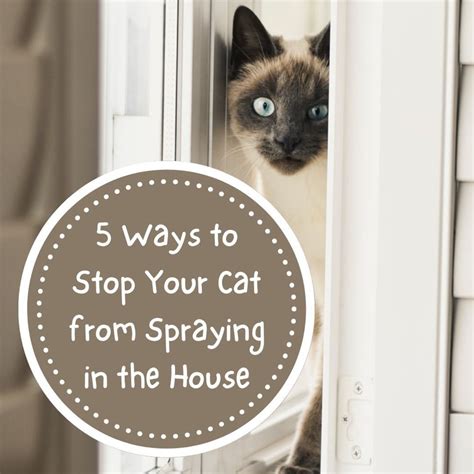How to Get a Cat to Stop Spraying: A Comprehensive Guide
Feline spraying is a common problem that many cat owners face. It's more than just marking territory; it's a complex behavior often rooted in stress, medical issues, or even inadequate resources. This guide will walk you through effective strategies to help your cat stop spraying and restore harmony to your home.
Understanding Cat Spraying
Before diving into solutions, understanding why your cat is spraying is crucial. Unlike urination, spraying involves a cat backing up to a vertical surface and spraying a small amount of urine, often with a distinct odor. This isn't about eliminating waste; it's about communication.
Common Causes of Cat Spraying:
- Territorial Marking: Cats, especially unneutered males, spray to mark their territory. This is a natural instinct.
- Stress and Anxiety: Changes in the environment (new pet, move, renovations), conflict with other cats, or even loud noises can trigger spraying.
- Medical Issues: Urinary tract infections, kidney disease, and diabetes can cause increased urination and spraying. A vet checkup is crucial to rule out medical problems.
- Inadequate Resources: Insufficient litter boxes, dirty litter boxes, or a type of litter your cat dislikes can lead to frustration and spraying.
Effective Strategies to Stop Cat Spraying
Once you've identified potential causes (veterinary check is always step one!), you can implement these strategies:
1. Veterinary Check-up: The First and Most Important Step
This is non-negotiable. A vet can rule out underlying medical issues that might be contributing to the spraying. They can also recommend specific treatment plans if necessary.
2. Neutering/Spaying: A Powerful Preventative Measure
For unneutered cats, spaying or neutering significantly reduces spraying behavior. This is one of the most effective ways to address the problem.
3. Environmental Enrichment and Stress Reduction: Creating a Happy Cat
- Multiple Litter Boxes: Provide at least one litter box per cat, plus one extra. Place them in easily accessible locations, away from food and water.
- Litter Box Type and Litter: Experiment with different types of litter to find one your cat prefers. Some cats dislike clumping litter, while others prefer uncovered boxes.
- Cleaning: Thoroughly clean sprayed areas with an enzymatic cleaner designed to eliminate pet odors. Regular cleaning prevents your cat from returning to the same spot.
- Vertical Space: Cats appreciate climbing and perching. Cat trees, shelves, and window perches can provide a sense of security and reduce stress.
- Reduce Stressors: Identify and mitigate any potential stressors in your cat's environment. This may involve adjusting routines, providing safe spaces, or using pheromone diffusers (Feliway).
4. Pheromone Diffusers and Sprays: Calming Influence
Pheromone diffusers (like Feliway) release synthetic feline facial pheromones, which can help calm anxious cats and reduce spraying behavior.
5. Positive Reinforcement: Rewarding Good Behavior
Reward your cat with treats and praise when they use the litter box appropriately. This helps associate positive experiences with the litter box.
6. Deterrents: Managing Access to Sprayed Areas
In some cases, you may need to temporarily restrict your cat's access to areas where they've sprayed. This might involve using baby gates or closing doors.
When to Seek Professional Help
If you've tried these strategies and your cat continues to spray, it's time to seek professional help from a veterinarian or a certified cat behaviorist. They can provide more targeted guidance and address any underlying behavioral issues.
Remember, patience and consistency are key. Addressing cat spraying requires a multi-faceted approach. By understanding the underlying causes and implementing these strategies, you can significantly improve your cat's behavior and create a happier, more harmonious home environment.
